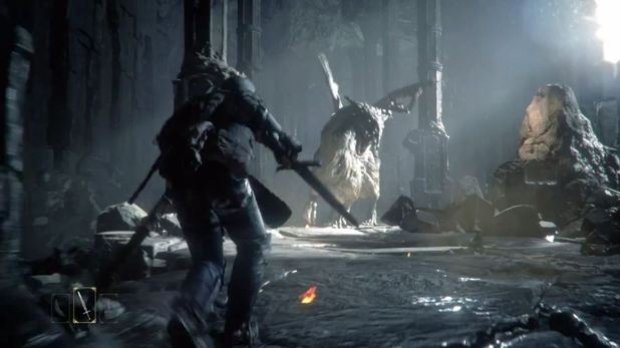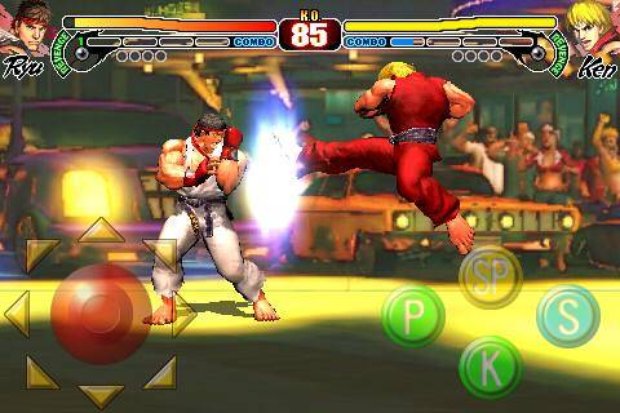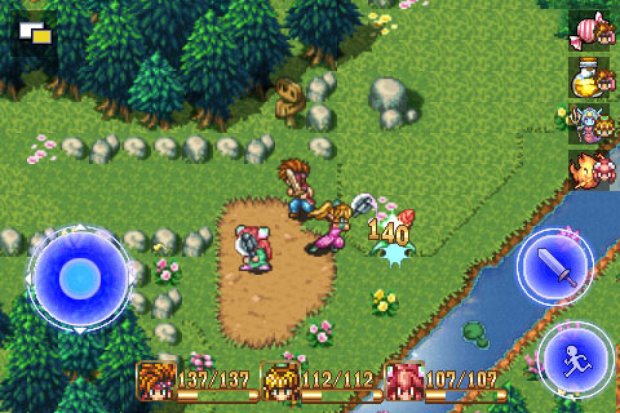Capcom (like most Japanese publishers) is investing in mobile at the wrong time
Compared to competitors like Konami, Square-Enix, and Namco, Capcom is one of few Japanese third parties staying profitable on consoles and handhelds. Not only is Capcom making next-gen exclusives like Dead Rising 3 and Deep Down (the latter of which still isn't confirmed for the US), but the home of Mega Man also has Monster Hunter, a title that conquers Japanese sales charts with every release. The company seems as equipped as any for the next generation--but now it's making the unfortunate move of investing its MH profits into a new mobile development studio in Osaka. That’s the last place it should be investing, and it’s the continuation of a trend towards mobile that’s very disconcerting to fans, both of Capcom and Japanese games in general.

The ‘80s, ‘90s, and early ‘00s were filled with groundbreaking games coming fast and furious from Japan--Final Fantasy, Metal Gear Solid, and Resident Evil (among countless others). But as development costs rose, publishers got increasingly conservative with their games, just as developers in the Western world were surpassing them creatively. Now that the new systems have made their debut, there’s a chance for companies like Capcom to catch up. Instead, it's investing heavily in mobile--more specifically, Japan-only mobile. To hardcore gamers, the choice of moving Monster Hunter profits to phone releases couldn’t be more backwards.
This business decision follows Capcom’s August announcement of 13 new games, none of which are currently planned for release outside Japan, almost all of which are planned for mobile platforms. It’s easy to understand how this happened. As the massive Monster Hunter profits prove, Capcom knows how to cater to Japanese consumers, so it’s committing to Japan’s current mobile boom. As smartphones catch on with a country that heartily supports handheld gaming, it makes sense that Breath of Fire 6 would come to iOS instead of PS4--but that doesn't make it any less heartbreaking for franchise fans. Gree and GungHo are making billions on phones, so why shouldn’t Capcom?

Beyond my personal distaste for any company that favors mobile over next-gen gaming, the bigger problem is that the mobile market in Japan is already getting smaller. The aforementioned Gree and competitor DeNA both saw shrinking profits in the last year, which is in keeping with overall losses in the mobile market on the US side. For a time iOS and Android releases looked like a never-ending money party--especially when compared to the high cost of console development. But just as Zynga is starting to see its rising star crash to Earth, here’s Capcom making a massive investment in mobile right when Xbox One and PS4 have hit stores. Now’s the time to pull back, not take the money from your only blockbuster and squander it on phones.
I don’t mean to single out Capcom, because basically all its competitors are going hard on mobile as well. Square-Enix--a company that suffered “extraordinary loss” that it blamed on US and EU game sales--is also pushing hard into mobile because that’s one of its few growth areas. Only, games like Final Fantasy: All The Bravest and Dragon Quest ports haven’t been that good, with some ports being particularly ugly. Even if this mobile trend makes a quick buck in Japan, there’s little sign of these bringing in much cash in the US market, which will severely limit Square-Enix in the long term.

And beyond the monetary gain, these aren’t the type of games that are going to put Japanese devs at the forefront of global development again. It appears such prestige is no longer a goal for Capcom and its compatriots, as they’ve grown weary of keeping up with the cutting edge. They’re planning only the hugest of franchises for Xbox One and PS4, then investing everything else in mobile. That’s a tragedy for anyone that enjoys games, and it will only get more tragic once the mobile bubble truly bursts.
Sign up to the GamesRadar+ Newsletter
Weekly digests, tales from the communities you love, and more
Henry Gilbert is a former GamesRadar+ Editor, having spent seven years at the site helping to navigate our readers through the PS3 and Xbox 360 generation. Henry is now following another passion of his besides video games, working as the producer and podcast cohost of the popular Talking Simpsons and What a Cartoon podcasts.



